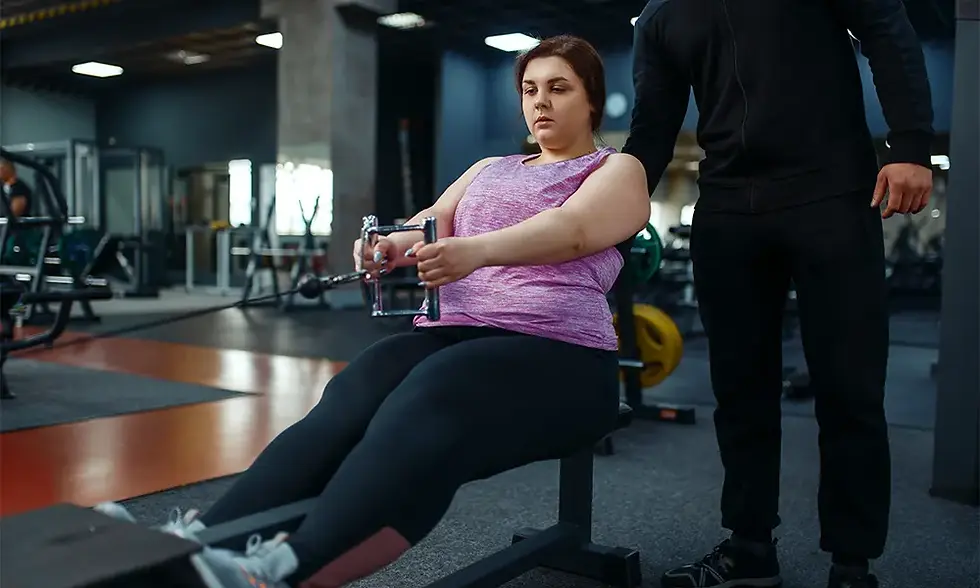Balancing Your Diet and Workouts for Optimal Results
- Jun 9, 2025
- 4 min read
In today's fast-paced world, many of us strive for health and fitness goals. Whether you're looking to lose weight, build muscle, or simply maintain a healthy lifestyle, understanding the balance between your diet and workouts is crucial for achieving optimal results. This blog post will guide you through the essentials of balancing your diet and workouts effectively.
The Interplay of Diet and Workouts
Diet and workouts are two sides of the same coin. Your nutrition plays a vital role in how well your body responds to exercises. If you're fueling your body with the right foods, you'll have more energy for workouts, and your body will recover faster after intense sessions. Research suggests that individuals who select a diet tailored to their fitness routines can see a marked improvement in their performance and results.
Importance of Nutrient Timing
Nutrient timing refers to consuming the right nutrients at the right times to maximize performance and recovery. A general guideline is to eat carbohydrates and protein within 30 minutes after working out. This helps to replenish glycogen stores and repair muscle tissues.
Consider having a banana and a protein shake right after your workout. Bananas provide quick-digesting carbohydrates, while protein aids in muscle recovery. Remember, nutrition doesn’t stop at just post-workout – balancing your macros throughout the day is essential.

Understanding Macronutrients
Macronutrients consist of proteins, carbohydrates, and fats, all of which have different roles in your diet. Understanding these roles can allow you to better balance your meals with your workouts.
Proteins: The Building Blocks
Proteins are crucial for muscle repair and growth. If you're lifting weights or engaging in resistance training, you need adequate protein to recover and build muscle. Sources include chicken, fish, eggs, legumes, and dairy products. Aim for at least 1.6 to 2 grams of protein per kilogram of body weight for optimal muscle gain.

Carbohydrates: Your Energy Source
Carbs are your body's primary energy source. They are especially important for athletes or individuals who have a more strenuous workout regimen. Include whole grains, fruits, and vegetables in your diet for sustained energy levels. Ideally, carbs should make up 45-65% of your daily caloric intake.
Fats: Essential for Hormone Production
Healthy fats play a critical role in hormone production and overall health. Incorporate sources such as avocados, nuts, seeds, and olive oil into your diet. While fats should not dominate your caloric intake, they are essential for nutrient absorption and maintaining hormonal balance, which is vital for both fat loss and muscle gain.
Hydration Matters
Hydration is often overlooked but is critical for both diet and workout performance. Dehydration can lead to fatigue, decreased performance, and even serious health complications. Aim to drink at least 8 cups (about 2 liters) of water a day, and even more if you're sweating heavily during workouts.
Consider adding electrolyte-rich drinks if you're engaged in prolonged intense exercise.

Setting Realistic Goals
Setting realistic fitness and weight goals is important for maintaining motivation and achieving results. Instead of aiming for drastic changes in a short period, focus on consistency and gradual progress.
For example, instead of trying to lose 10 pounds in a week, aim for 1-2 pounds per week. This not only promotes healthier weight loss but also provides your body time to adjust. Use SMART goals - Specific, Measurable, Achievable, Relevant, and Time-bound - to create an actionable plan.
Putting It All Together
Balancing your diet and workouts doesn’t have to be complicated. Start by making small but significant changes to your nutrition and exercise routines. Here are a few actionable tips:
Plan Your Meals: Planning ahead keeps you accountable and ensures you're consuming the right nutrients.
Track Your Progress: Use a journal or an app to monitor what you eat and how you work out. This clarity can help you adjust your approach as needed.
Listen to Your Body: Pay attention to how your body responds to different foods and workouts, and adjust accordingly.

Developing a Sustainable Routine
Finding balance is not just about short-term change; it's about long-term habits. A sustainable routine is one that you can maintain over time.
Consider incorporating a variety of resistance training, cardiovascular workouts, and flexibility workouts into your weekly regime. Balance this with a dinner plate filled with colors - a mixture of protein, carbs, and healthy fats.
To maintain motivation, change up your workouts periodically. Join a fitness group or a class to engage with like-minded individuals. Motivation can be contagious; being surrounded by others who share your goals can profoundly impact your journey.
The journey of balancing your diet and workouts for optimal results is ongoing. There will be times when you might feel out of sync, but that’s perfectly normal. Adaptability is key to maintaining consistency and will ultimately lead you to achieve your goals.
Remember, the aim is to promote a healthy lifestyle that you can stick with for years to come. The nutrients that fuel your workouts and the dedication to train consistently will pave your way toward success. For more detailed advice about fat loss and muscle gain, consider consulting a nutritionist or fitness professional who can customize a program specifically for you.



Comments